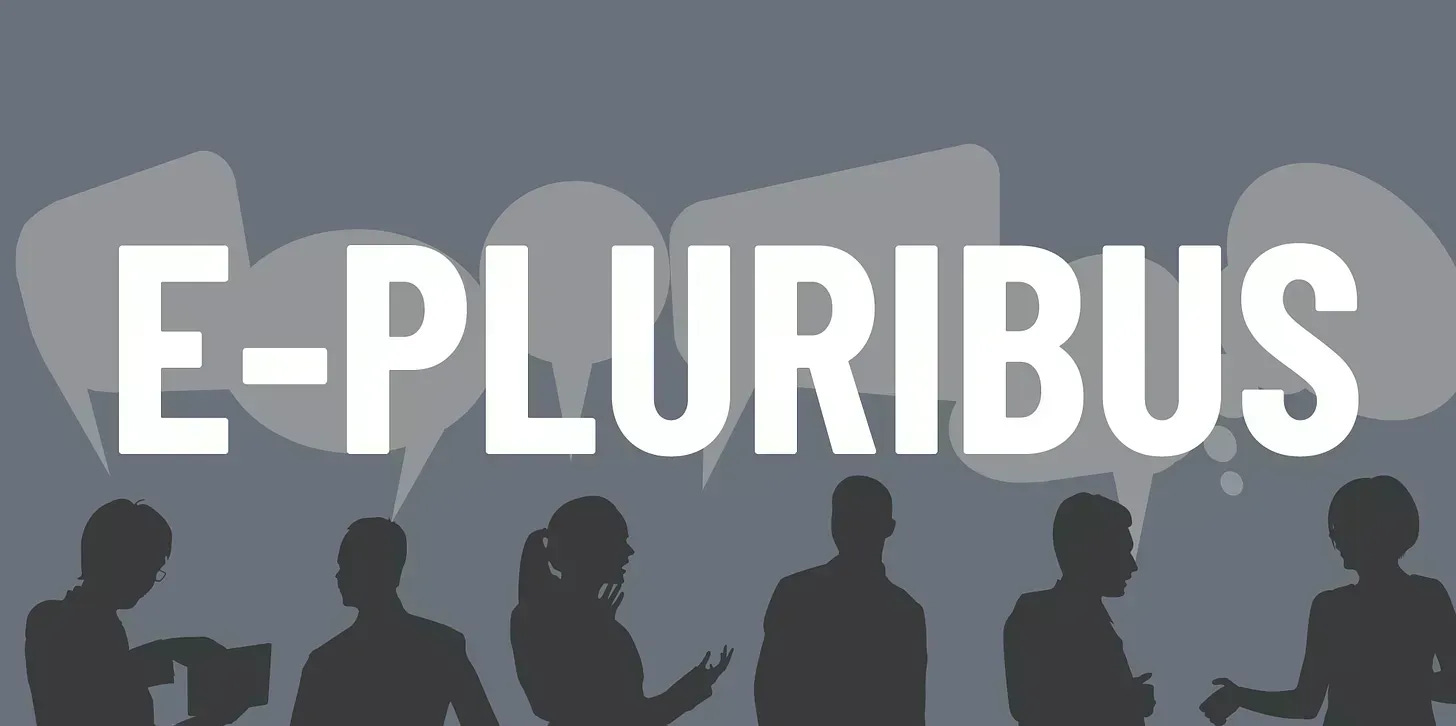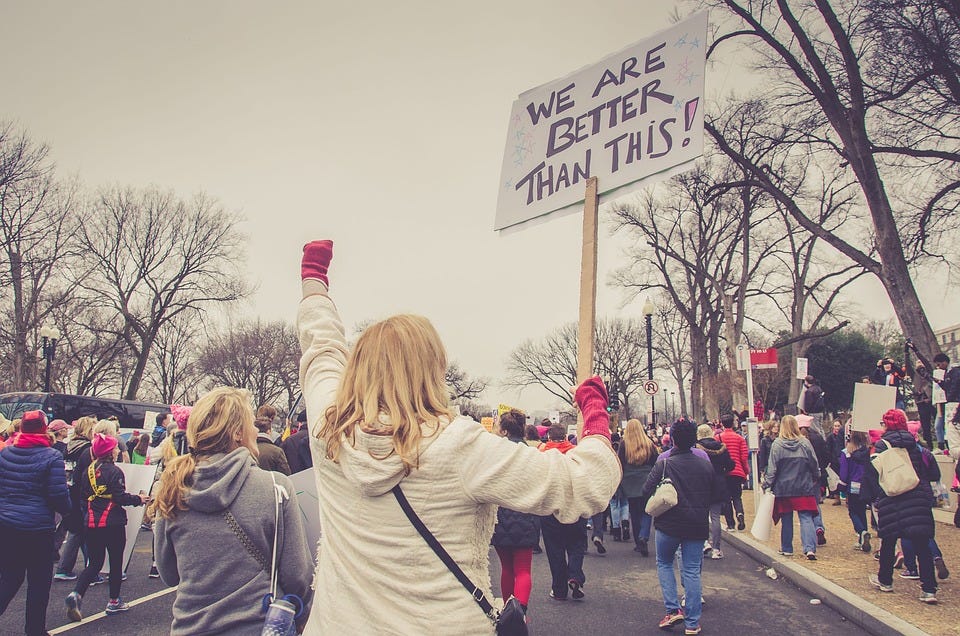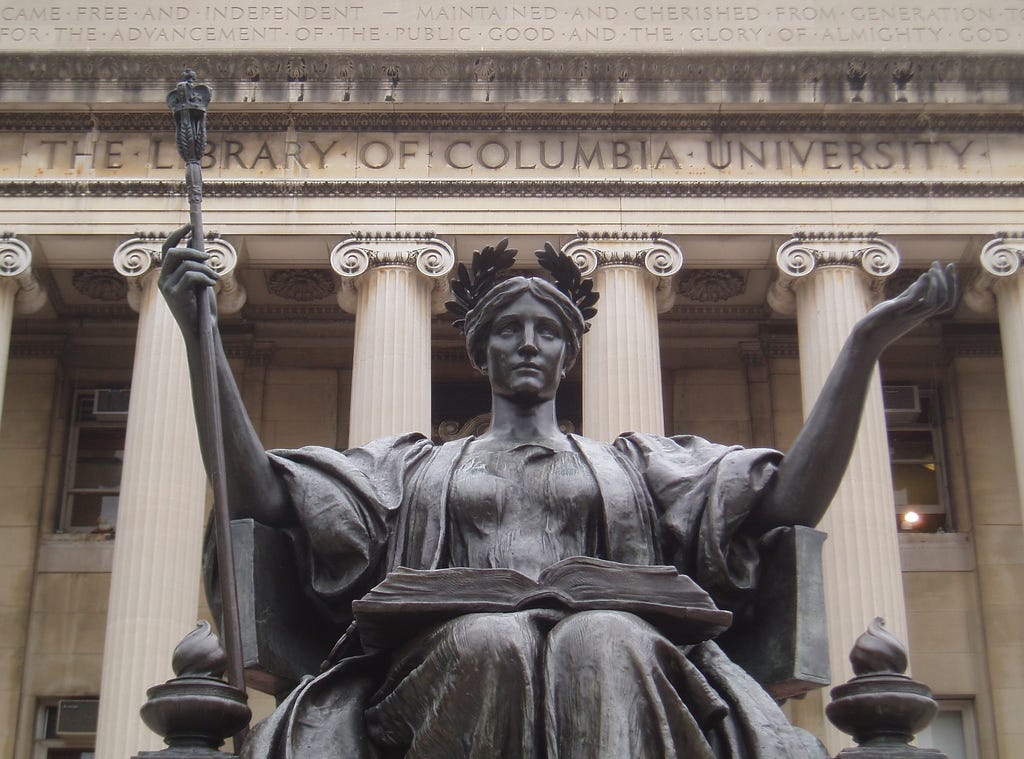E-Pluribus | April 28, 2025
Feds can't enforce 'viewpoint diversity; the trouble with prior restraint; student: Columbia 'targeted me' for my faith
A round-up of the latest and best musings on the rise of illiberalism in the public discourse:
Walter Olson: Feds Can’t Regulate “Ideological Diversity” at Schools Like Harvard
At the Cato Institute, Walter Olson challenges the federal government’s ongoing campaign to enforce viewpoint diversity on college campuses by threatening to withhold their funding. Bottom line: strong-arm tactics of that sort are flatly illegal:
No civil rights law on the books requires “viewpoint diversity” in university admissions or hiring or creates a protected class of students or faculty based on ideological views.
No law of any sort entitles the federal government to reach into private universities to restructure their governance and disciplinary procedures to “improve [their] viewpoint diversity and end ideological capture”—whatever that means—or to require college brass to intervene to restructure named departments and schools that federal overseers designate as ideologically out of line—even, incredibly, a divinity school.
These are all things that the Trump administration is demanding of Harvard University on pain of massive peremptory cutoffs of funding for ongoing scientific research and other programs—cutoffs that appear to violate a number of legal safeguards meant to prohibit arbitrary or spiteful defunding without due process.
I’m glad that Harvard is fighting back, and I hope other institutions do too. I also hope right-of-center legal and policy thinkers who spent years resisting Washington’s heavy hand in university governance will realize that they need to defend Harvard too.
Caitlin Vogus: Free speech suffers when courts rush to impose prior restraints
Prior restraint is an incendiary legal doctrine that allows the government to restrict or even prohibit speech before it occurs. Historically, it’s been sparingly used in the US, governed as we are by the Constitution. Nevertheless, Caitlin Vogus argues that prior restraint is still widely abused by courts that fail to consider the consequences before they prohibit speech:
Perhaps the most famous adage of journalism — get the truth and print it — continues to face attacks in our courts, and judges often fail to stop them.
A recent case comes from Victoria County, Texas, where last month a judge entered a temporary order preventing the publication of a book about alleged sexual harassment by former Phi Theta Kappa Honor Society director Rod Risley.
The court lifted the order on April 8, but only after the honor society had stopped the book from being published on the first day of its national convention, when it would have had the greatest impact.
Phi Theta Kappa, which sought the restraining order against author Toni Marek, hadn’t claimed that the information in her book is false. By its own admission, Marek received the information legally, either through public records requests or by speaking to former employees. But the honor society argued that the book shouldn’t be published because information in it is “confidential.” A judge initially agreed.
…
The First Amendment prohibits prior restraints in all but the most extreme circumstances. In 1971, the Supreme Court even rebuffed the government’s attempt to stop the press from publishing the Pentagon Papers, documents the government claimed contained state secrets that could harm national security.
The Court has also repeatedly affirmed the First Amendment right to publish lawfully obtained, truthful information on matters of public concern.
But even though these censorship orders are supposed to be extremely rare and are almost always unconstitutional, prior restraints seem to be persisting.
One reason may be that judges are failing to recognize the First Amendment interests at stake when someone asks for a prior restraint on an "emergency" basis, as Phi Theta Kappa did in the case of Marek’s book. Because the honor society sought a temporary restraining order, Marek didn’t have a chance to appear in court and argue her side before the judge entered the initial order banning publication.
Daniel Di Martino: Columbia Is Targeting Catholic Students Like Me
Columbia University just accused one of its students of “conduct that could constitute discriminatory harassment.” His offense? Talking about his faith on his personal social media account. City Journal has the story:
Columbia University has told the Trump administration that it’s cracking down on anti-Semitic violence and intimidation and winding down DEI. But behind closed doors, the university’s Office of Institutional Equity (OIE), a new bureaucracy supposedly set up to address campus anti-Semitism, is targeting me for expressing my Catholic faith.
I recently received an email from the OIE accusing me of “conduct that could constitute discriminatory harassment.” The message included no details, and when I asked for clarification, OIE didn’t provide any. But I’m familiar with how liberal institutions often operate, and I suspected that the matter concerned my public statements on social media. I was right.
In a meeting with three OIE officials—who identified themselves as “investigators”—I was informed that I had been the subject of “multiple complaints.” They insisted that their goal wasn’t to discipline me but to “make sure this doesn’t escalate into a disciplinary outcome.” This process, they assured me, was “for my own benefit.” How kind of them.
They then showed me screenshots of my social media posts, treating my public Catholic beliefs as if they were prohibited. I smiled when I saw them. I had nothing to regret.
…
One of the investigators told me that posting about the decline of Christianity could make people of other religions feel excluded. They asked, “Can someone else share their opinion with you the way you do?” I answered, “Yes—and I’m offended by many opinions, but that doesn’t make them harassment.”
Columbia’s policy defines creating a “hostile environment” as any action that merely makes another person feel uncomfortable. It’s impossible to apply such a vague and subjective standard fairly, as Columbia has demonstrated by enforcing it selectively against me.
At the end of the meeting, the investigators told me to “think about this conversation” before I post again. I replied, “Can you understand that this sounds threatening?”
Around X
For all their ferocious disagreement, the far right and the far left often converge when it comes to silencing free speech. And Colin Wright is having none of it:
Babylon Bee CEO Seth Dillon agrees, adding an important point about the purpose of the First Amendment. “Free speech is the right that allows us to defend all the other rights,” he told Young America’s Foundation last week:
As the second World War raged in 1943, Winston Churchill reminded the U.K. Parliament that free speech applies to all speech, not just statements we happen to agree with. The quote below appears to be a paraphrase of Churchill’s comments, but the sentiment is admirable all the same:









